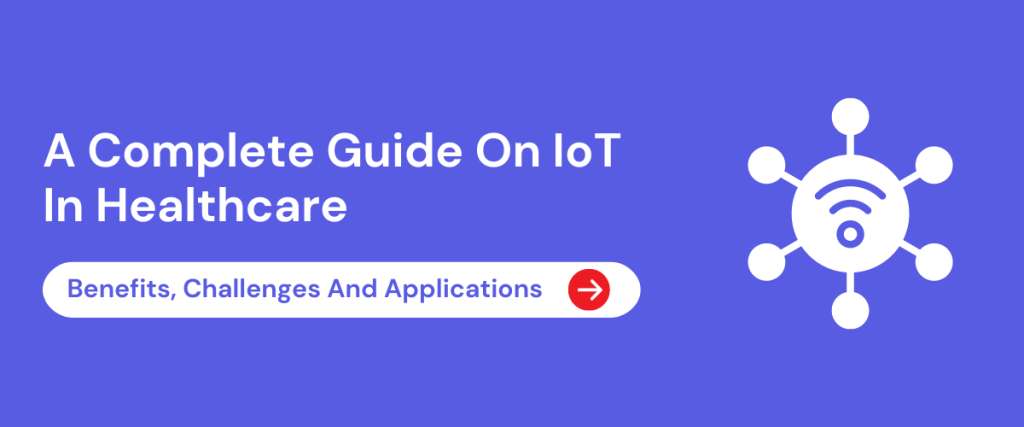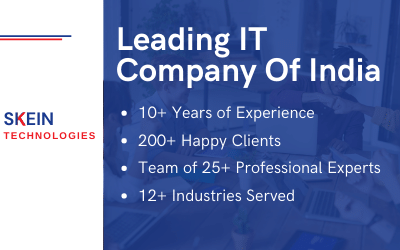The healthcare industry is undergoing a transformative shift driven by the Internet of Things (IoT). This network of interconnected devices, sensors, and applications is fostering a new era of personalized, proactive, and data-driven care.
By harnessing the power of IoT, healthcare providers can improve patient outcomes, streamline processes, and reduce costs.
However, this exciting landscape also presents significant challenges that need to be addressed.
Benefits of IoT in Healthcare
The integration of IoT offers a multitude of advantages of IoT for the healthcare system:
Enhanced Patient Care
Real-time patient monitoring is a game-changer. Wearable devices track vital signs like heart rate, blood pressure, and blood sugar, allowing for early detection of potential issues.
Smart inhalers can monitor medication adherence in asthma patients, while ingestible sensors can track internal conditions in the digestive tract. This continuous data stream empowers healthcare providers to intervene promptly and tailor treatment plans effectively.
Improved Chronic Disease Management
IoT empowers patients with chronic conditions to actively participate in their own care.
Blood glucose monitors, insulin pumps, and smart pillboxes for medication management provide real-time data and reminders, promoting self-management and reducing complications.
Remote Patient Monitoring
IoT has revolutionized healthcare through remote sensing and communication with medical devices, enabling efficient patient monitoring and alerting systems. It’s applicable in various instruments, including ECG monitors, glucose level sensors, and oxygen concentration detectors
Preventative Care
By collecting vast amounts of health data, IoT enables healthcare professionals to identify potential health risks before they develop into major problems.
This allows for preventative measures and early interventions, ultimately improving overall health outcomes.
Streamlined Healthcare Processes
IoT automates repetitive tasks such as inventory management of medical supplies and equipment.
Additionally, smart beds can track patient movement and vital signs, alerting staff when assistance is needed. This optimization of workflows translates to improved efficiency and cost reduction.
Personalized Medicine
The rich data collected by IoT devices allows for a more personalized approach to healthcare.
The adoption of IoT in personalized healthcare is promising, with IoT-based solutions making personalized and connected healthcare a reality. This includes a detailed exploration of emerging healthcare applications and the technical aspects required for end-to-end solutions, highlighting the importance of both short-range and long-range communications
Challenges of Implementing IoT in Healthcare
Despite the promising benefits, implementing IoT in healthcare comes with its own set of challenges:
Data Security and Privacy
The vast amount of sensitive patient data collected by IoT devices raises major concerns about security and privacy.
Breaches can expose sensitive medical information, leading to identity theft, discrimination, and even physical harm. Robust data encryption protocols and stringent regulations are crucial to ensure patient trust.
Interoperability
The healthcare landscape suffers from a lack of standardized communication protocols between different IoT devices and healthcare IT systems.
This fragmentation hinders seamless data exchange and integration, creating challenges for data analysis and comprehensive care coordination.
Device Integration and Management
The proliferation of various IoT devices can lead to complex management issues.
Streamlining device integration within existing healthcare infrastructure and ensuring their smooth operation requires significant investment in IT infrastructure and expertise.
Cost Considerations
The initial investment required for deploying and maintaining an IoT ecosystem in healthcare can be substantial.
This includes the cost of devices, data storage, security measures, and staff training, which can be a burden for some healthcare institutions.
Cybersecurity Threats
IoT devices are inherently vulnerable to cyberattacks due to their often limited security features.
Hackers can exploit these vulnerabilities to steal patient data, disrupt medical operations, or even manipulate medical equipment, potentially putting patients at risk.
Applications of IoT in Healthcare
Despite the challenges, IoT is already making significant strides in various healthcare domains:
Chronic Disease Management
Smartwatches, blood glucose monitors, and insulin pumps with real-time data and feedback loops empower patients with diabetes to manage their condition effectively.
Remote Patient Monitoring
Cardiac monitoring devices, smart inhalers for asthma patients, and wearable fall detectors for the elderly allow for remote monitoring at home, promoting faster intervention and reducing hospital readmission rates.
Mental Health Care
Wearables can track sleep patterns, heart rate variability, and activity levels, potentially aiding in the diagnosis and management of mental health conditions like depression and anxiety.
Surgical Robotics
IoT-enabled surgical robots enhance precision and minimally invasive procedures, leading to faster recovery times for patients.
Inventory Management
Smart shelves and sensors track medical supplies and equipment, ensuring availability and optimizing inventory levels within hospitals and clinics.
The Future of IoT in Healthcare
The future of IoT in healthcare is bright, with continuous advancements in technology paving the way for even more sophisticated applications.
Here are some exciting possibilities:
Artificial Intelligence (AI) integration
AI algorithms can analyze vast amounts of patient data collected by IoT devices to identify patterns, predict potential health risks, and personalize treatment plans.
Telemedicine
IoT will further revolutionize telemedicine by enabling remote diagnosis and consultation with real-time data access and integration. This will improve access to healthcare in remote areas and for patients with limited mobility.
Smart Implants
The development of smart implants with biosensing capabilities can revolutionize chronic disease management. These implants can continuously monitor vital signs and biochemical changes, allowing for real-time adjustments to medication or treatment plans.
Precision Medicine
By harnessing the power of Big Data analytics from IoT devices, healthcare professionals can move towards a future of precision medicine – tailoring treatments to individual patients based on their unique genetic makeup and health data.
Conclusion
The integration of IoT in healthcare holds immense potential to transform the industry by improving patient care, streamlining processes, and reducing costs.
However, addressing challenges related to data security, interoperability, and cybersecurity is crucial for ensuring the safe and ethical implementation of this technology.
As these challenges are overcome and the technology matures, IoT has the potential to usher in a new era of proactive, personalized, and data-driven healthcare for all.


